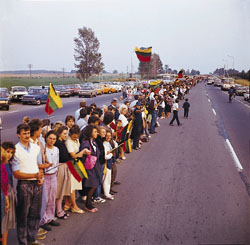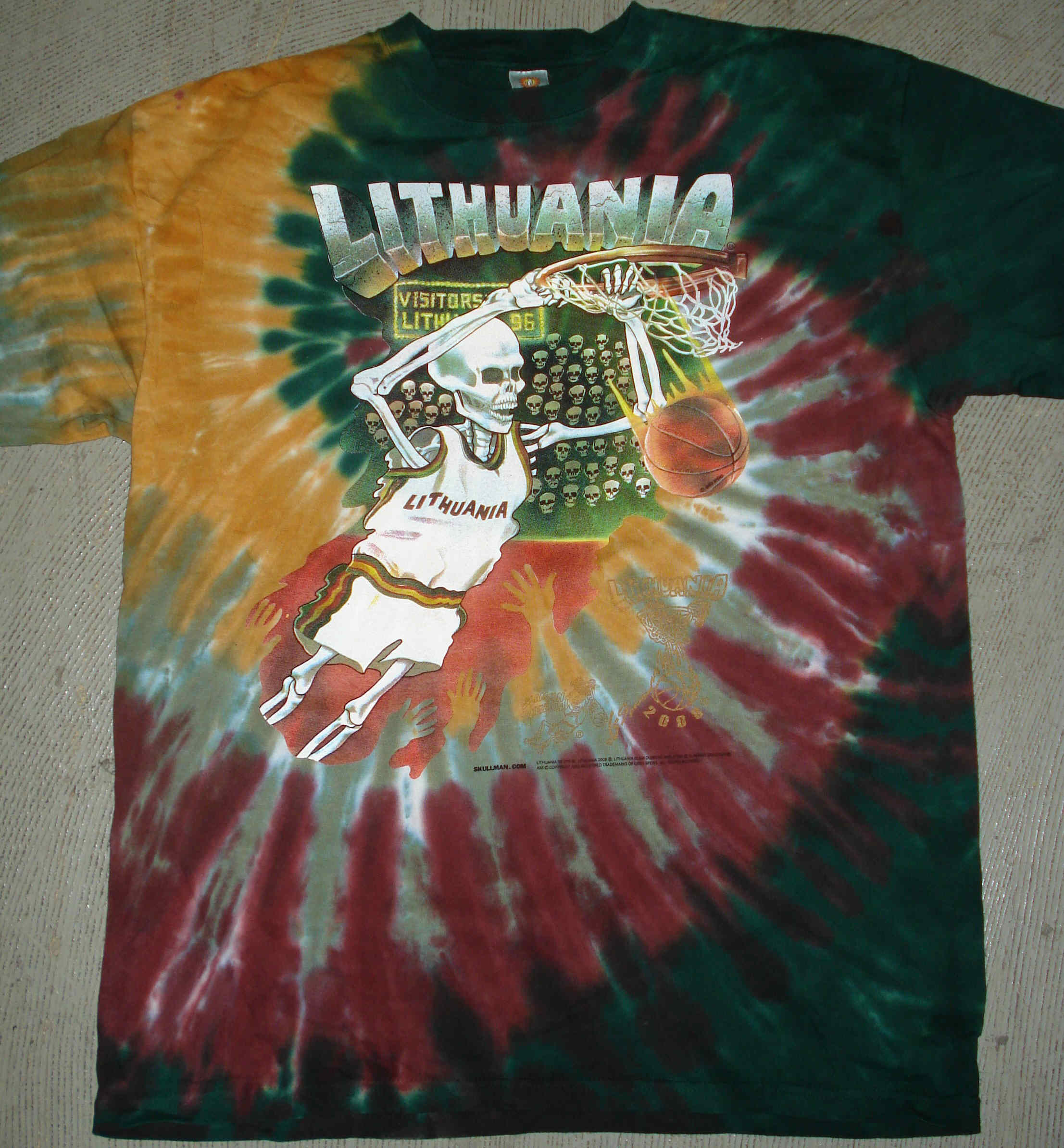On Thursday, Sept. 20, I was given the opportunity to attend a red carpet premiere of a documentary featuring the athletes pictured above. They were "the Other Dream Team" - a free-spirited and incredibly talented group of then-young men from Lithuania who triumphed, in their own way, at the 1992 Summer Olympics in Barcelona. Their emotional story of success is one that I had never heard before, maybe due to my failure to follow world events that year (born: 1991). If this national basketball team was new to me, perhaps it is also new to you. So this post is dedicated to them, and to the young country whose heart these men carried in their pockets that summer. The documentary, with the same title as this post, captures the events leading up to, surrounding, and following the 1992 Olympics far better than I could (of course), and you should all watch the film. That being said, I will do my best to paint you a picture.
In 1988, the Soviet Union competed in their last Summer Olympics. With a team of twelve, consisting of 4 Lithuanians, 3 Ukrainians, 1 Estonian, 1 Latvian, 1 Uzbek, and only 2 Russians, the Soviet team conquered the Olympic men's basketball tournament. They defeated the United States in semi-final play, 82-76, defeated Yugoslavia in the final, and clenched their second-ever gold medal in men's basketball. Ten members of the team, from Soviet-occupied nations, were compelled to play for a regime which had oppressed their people and their homeland since well before they were born. While they were undoubtedly proud of their talent and teamwork, it must have been with mixed emotions that they stood on the medal stand, before the world, and paid tribute to the national anthem of the Soviet Union. In their hearts, maybe they each paid tribute to their own country instead, dreaming of a day when they could glorify their own free people. For the four Lithuanians the road would be hard, but they would not have to wait long.
So here comes the crash course in Lithuanian independence. As you may know, the policies of Gorbachev (glasnost and perestroika), sent deep tremors though the foundations of the Soviet regime in the late 1980s. In 1987, the first non-criminal political protests took place in Vilnius, the Lithuanian capital, and by 1988 huge rallies led by Lithuanian citizen groups were demanding radical reform. That year, one of the stars of the 1988 Olympics Soviet team, Sarunas Marciulionis, was allowed to be drafted by the Golden State Warriors and become the first European with a regular slot in the NBA. In 1989, Pro-independence groups organized a massive human chain connecting the three Baltic capitals (Vilnius, Riga, and Tallinn), in which two million Baltic people took a place on the line. Over 25 percent of the entire regional population joined hands in a message of independence in one amazing and powerful moment.
The Republic of Lithuania, having not officially existed since 1940, was now a free and democratic country - and it was completely broke. The new capitalist economy was struggling, and there was simply no money for a competitive national basketball team. The four star Lithuanian players of the 1988 Soviet gold-medal run were ready to play again - but they needed jerseys, travel money, and the basic funds to pay tournament entrance fees. Marciulionis, still in the USA playing for Golden State, began raising money on his own, a few hundred dollars at a time, by making appearances at private gatherings in the Bay Area. When a local newspaper published a story on his quest however, his fundraising days were over. The team's salvation came from some of the most unlikely and memorable investors the game of basketball ever had - the bandmembers of "The Grateful Dead". Huge basketball fans themselves, they jumped at the opportunity to sponsor a team of their own; not just any team, but the first basketball team of the free nation of Lithuania, who defied the Soviets and struck out on their own. Soon Marciulionis was headed back to his homeland with a check, handed to him backstage of a Grateful Dead concert, to enter the qualifying tournament of the 1992 Summer Olympics. The team's new warm-ups would appear in the mail soon after. (see below)
In the Bronze medal round the Lithuanians faced their old Soviet familiars, operating under the title of the "Commonwealth of Independent States" (CIS). They had faced-off in the preliminary round and the CIS had won, but now the stakes were infinitely higher. For the new nation it was way more than a basketball game or an Olympic medal. It was more than a chance to validate themselves on the world stage. The game was chance for Lithuania to cast out the demons of their troubled past. As the Lithuanian president watched and screamed from the sidelines, and millions around the world screamed beside him, the teams waged war for four quarters. Lithuania was only just ahead 82-78 when the buzzer rang, and they held their heads in joy and disbelief. On the medal stand, a strong contrast could be made between the stoic American Dream Team and "those other guys". The Lithuanians took their time making a way to their platform, too overwhelmed with emotion to maintain any semblance of order, wearing those iconic tie-dye warm-ups (which had become the must-buy item of the '92 Olympic Games). They wore those Bronze medals as true champions would, and the world cheered as a young country forged their new national identity.




No comments:
Post a Comment